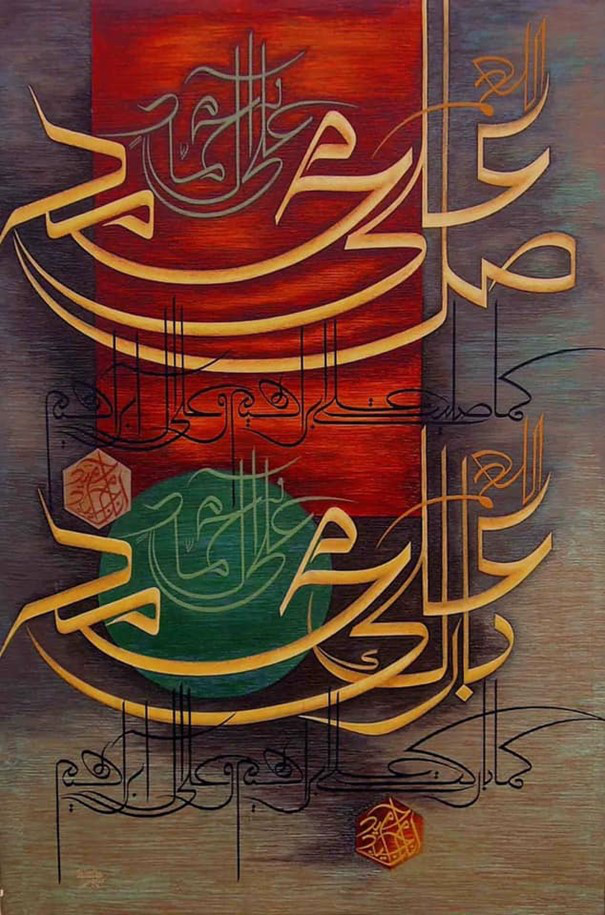Musa Kazim GULCUR
January 10, 2023
To listen to the article ‘The Importance of Virtuous Behavior in Islam II’ on Spotify, please click the following link:
https://spotifyanchor-web.app.link/e/DYNYtKDqswb
Content
Argument (Jadal) and Contentiousness (Merâ) 5

“Allah and His angels shower blessings on the Prophet. O ye who believe! Ask blessings on him and salute him with a worthy salutation.”
(The Combined Forces Al-Ahzab, 33/56)
In Islam, good morals and virtues pertain to the guiding principles and values that shape behavior following the religion’s teachings. This concept includes both outward actions and inward intentions and is deemed an essential element of a Muslim’s faith. Good morals and virtues lay the most conscientious foundation for personal and spiritual development, leading to a virtuous and rewarding life. Moreover, they represent the clearest and most spiritual path to enhancing relationships with others, fostering peace, and cultivating harmony within society. Good morals are emphasized in the Qur’an and the teachings of Prophet Muhammad (pbuh), serving as a pivotal theme in Islamic belief, literature, and culture.
Islam advocates for commendable morals and virtues, promotes them, and forbids disgraceful behavior, instilling an aversion to it. Islamic morality is notably characterized by its inherent goodness. Virtuous morals are disciplines that manifest noble qualities and desirable skills associated with righteous actions. The fundamental aim of morality in Islam is to draw nearer to Allah (cc), elevate the soul, and shed negative habits. Consequently, this fosters the swift emergence of virtuous deeds and positive psychological traits within an individual. To attain such stature, one must embark on a journey of self-discovery. Those who understand themselves ascend to the realm of knowledge, becoming virtuous and devout. At the heart of all moral and spiritual growth lies the concept of ‘taqwa,’ which is essential for development.
Taqwa

In Islam, worshiping and obeying God constitutes one of the fundamental purposes of human existence. This involves shunning sin and adhering to the religion’s teachings and principles. Only through eschewing sin and leading a righteous life can individuals purify their souls and become closer to God. Such a lifestyle fosters inner tranquility and satisfaction, alongside spiritual advancement and growth.
Demonstrating gratitude to God for His blessings and guidance can be expressed through respect and obedience. In Islam, the belief that everything in existence, including one’s life and talents, is bestowed by God, necessitates their use in a manner that honors Him. Respect for the Creator and adherence to His directives not only show appreciation for these divine gifts but also affirm one’s dedication to a life that seeks God’s pleasure.
Maintaining a distance from sins and showing respect towards Allah is known as ‘taqwa’.[1]. Upon brief examination, taqwa is typically categorized into three tiers:
1. Firstly, to eschew the peril of damnation, one must refrain from idolatry and adhere to faith.
2. Secondly, the goal is to prevent oneself from committing major sins, avoid persisting in minor sins, and perform obligatory acts of worship.”
3. The third aspect involves a person devoting themselves entirely to Allah by purifying their heart of sins.[2].
Abu Dharr said: The Messenger of Allah said to me:
اتَّقِ اللَّهَ حَيْثُمَا كُنْتَ وَأَتْبِعِ السَّيِّئَةَ الْحَسَنَةَ تَمْحُهَا وَخَالِقِ النَّاسَ بِخُلُقٍ حَسَنٍ .
“Have taqwa of Allah wherever you are and follow an evil deed with a good one to wipe it out and treat the people with good behavior.”[3]
Dignity (حلم)

Dignity refers to the inherent worth that renders an individual deserving of honor, respect, and esteem. This concept holds significant importance in Islam, as well as in various cultures and societies around the world. It is frequently regarded as an essential human right.
The belief that every person possesses inherent worth and value as a human being, irrespective of their background, circumstances, or personal traits, underpins the importance of dignity. It is a fundamental ethical principle to recognize and respect others’ dignity, as it affirms the value and worth of each individual.
Dignity holds not only ethical value but is also crucial for personal well-being and self-esteem. Experiencing respect and dignity bolsters an individual’s self-worth and confidence, positively impacting mental and emotional health. Furthermore, it fosters healthy, positive interactions by encouraging respectful and considerate treatment of others.
The Arabic term ‘hilim’ signifies dignity, patience, prudence, temperance, perseverance, and behavior that is both wise and civilized. As ‘hilim’ stems from intellectual processes, it also encapsulates the application of wisdom into tangible actions and knowledge. The hallmark of a virtuous individual lies in their wisdom and erudition, coupled with an aversion to folly, excess, and ignorance. Islam is a faith grounded in wisdom, knowledge, and the nurturing of the heart, soul, and intellect. ‘Hilim’ represents the intellect’s restraint against excess and rejects transient, valueless passions. Those who embody patience and forbearance epitomize true wisdom. ‘Hilim’ serves as a shield from adversities. It embodies determination, steadfastness, erudition, intelligence, and compassion.”
The term ‘Halîm,’ from Esma-i Husna, the most beautiful name of Allah, signifies extreme patience. It conveys the idea that Allah does not immediately punish His servants for their transgressions, instead granting them respite and ensuring that all actions are measured and proportionate. In the Qur’an, Allah the Almighty is not associated with the term ‘intellect’; rather, He is described with ‘Halim,’ a word that encompasses all facets of intelligence, both as a noun and a verb. Consequently, the embodiment of this noble attribute in humans is of significant importance.”
According to the narration from Umm Salama (r. anha), the Prophet (pbuh) said:
من لم يكن فيه واحدة من ثلاث فلا يحتسب بشيء من عمله تقوى يحجزه عن معاصي الله او حلم يكف به سفيها او خلق يعيش به في الناس .
“Whoever does not have at least one of these three characteristics, should not expect any results from his deeds:
1. If he has no taqwa keeping him away from haram.
2. If he has no hilim (mild temper) protecting him from going astray.
3. If he does not have good morals to be with people.”[4]
The Smile Feature

Smiling represents a neurologically active emotional state. A smile triggers a potent chemical reaction within the brain, enhancing feelings of happiness. Activation of our smiling muscles sends a signal to the brain, stimulates our reward system, and elevates our levels of happiness hormones, or endorphins. Smiling prompts the release of neuropeptides that help fight stress. These small molecules facilitate communication between neurons, conveying messages throughout the body about our emotional states, whether we are happy, sad, angry, depressed, or excited. The act of smiling releases feel-good neurotransmitters – dopamine, endorphins, and serotonin. As endorphins serve as natural pain relievers, smiling not only induces relaxation but also reduces heart rate and blood pressure.
In essence, smiling prompts our brain to induce a sense of joy. The serotonin released during a smile serves as a natural antidepressant, mitigating stress, balancing mood, and bolstering the immune system. Unlike many pharmaceutical antidepressants that come with side effects, smiling is free of adverse consequences and doesn’t require a doctor’s prescription. The innate state of contentment triggered by smiling is an integral part of our primary social mechanism. It acts as a nonverbal communicative tool that shapes our interactions with others throughout our lives.
Smiling is infectious. When your brain experiences joy or observes someone else smiling, it triggers the cingulate cortex responsible for facial expressions, prompting an automatic smile. The profound impact of a smile is evident from the joy a baby’s smile brings. Regardless of exhaustion or restlessness, a smiling baby will invigorate you with happiness. When an individual smiles, it enhances the mood of both the smiler and the observer. Perhaps it is due to these positive influences that October 7 has been designated as World Smile Day.
Narrated by Abu Huraira (ra), the Prophet (pbuh) said:
إنكم لا تسعون الناس بأموالكم وليسعهم منكم بسط الوجه وحسن الخلق .
“You cannot embrace or surround people with property. You can only surround people with smiling faces and good morals.”[5]
Abu Wahb narrated that:
Abdullah bin Al-Mubarak explained good character, and then he said:
“It is a smiling face, doing one’s best in good, and refraining from harm.”[6]
Good Morality

The cornerstone of an individual’s character and conduct lies in robust morality. This encompasses the ethical codes and values that shape one’s choices and actions, often linked with virtues like integrity, empathy, equity, and regard for others.
Good morality holds significant importance for several reasons. Among the primary advantages of possessing strong moral principles are:
1. Leading a moral life can result in inner tranquility, joy, and satisfaction.
2. Positive relationships are fostered by good morality, which entails treating others with respect and consideration, thereby strengthening interpersonal connections.
3. Promoting good morality fosters social cohesion and harmony by endorsing values like fairness, justice, and respect for one another.
4. Numerous religious and philosophical systems consider the cultivation of virtuous behavior to be a crucial element of spiritual progress.’
In essence, upholding strong moral principles is deemed essential for the welfare of both individuals and the community at large. Such principles are considered foundational in fostering a society that is healthy, content, and cohesive.
Enes b. Malik (ra) heard the Prophet (pbuh) say:
مكارم الأخلاق من أعمال الجنة .
“Certainly, good morality worthy of praise is the work of the people of Paradise.” [7]
One of the responsibilities of our Prophet (peace be upon him) in this world was to command, advise, and guide people toward exhibiting good attitudes and behaviors, collectively known as ‘good morals’. A significant statement on this matter is as follows:
Abu Hurayra reported that the Messenger of Allah, may Allah bless him and grant him peace, said this:
إِنَّمَا بُعِثْتُ لِأُتَمِّمَ صَالِحَ الأَخْلاقِ .
“I was sent to perfect good character.”[8]
How does Almighty Allah assess deeds to determine their value or worthlessness? In other words, what are the divine ethical standards regarding this matter? The Prophet (pbuh) elucidates this significant question as follows:
Sahl b. Sa’d es-Saidi (ra) heard our Prophet (pbuh) say:
إن الله كريم يحب الكرم ومعالي الأمور ويبغض أو قال يكره سفسافها .
“Verily, Allah is the Most Merciful, He loves generosity and valuable works. He gets angry (or sees it ugly) at worthless works.”[9]
The Arabic term ‘muruwwat’ encapsulates virtues such as bravery, humanity, goodness, benevolence, generosity, and graciousness. Conversely, ‘hasab’ refers to a concept denoting familial lineage, tracing connections through mothers, fathers, grandmothers, and grandfathers, as well as individual characteristics. In hadith literature, ‘hasab’ is metaphorically employed to signify “honor.”
Narrated by Abu Huraira (ra), the Prophet (pbuh) said:
كرم المؤمن دينه و مروءته عقله و حسبه خلقه .
“A person’s grace (كرم / karam) is his religion. His humanity (مروءت / muruwwat) is with his reason. His honor (حسب / hasap) is related to his morals.”[10]
Reason (عقل) and Avoiding (وَرَعَ)

The term ‘reason’ in Arabic signifies to grasp and confine. Utilizing the knowledge acquired via reason enables an individual to exercise self-control and evade numerous errors.[11] ‘Reason’ is the faculty that enables the acquisition of knowledge. Being reasonable, which is antithetical to foolishness, involves self-restraint, not yielding to one’s desires, and persisting in one’s endeavors. Additionally, ‘reason’ can signify ‘heart.’ Reasonableness is a trait that safeguards an individual from hazards.[12]
The lexicographer and historian Asım Efendi (died 1235/1819) provides the following definition of the word ‘reason’ in his Kâmus:”
“Reason encompasses knowledge and understanding, manifested through mental imagery. It involves discerning the beauty and ugliness, the deficiencies and excesses of things, which is termed reasoning. For some, it entails the comprehension of what is superior and what is inferior. Others believe that reason is a spiritual power that allows one to distinguish between the beautiful and the ugly.”[13]
The capacity to think, comprehend, and logically and critically evaluate ideas and information is a hallmark of humanity. This ability is often regarded as a fundamental distinction between humans and other animals.
The reason is significant for multiple reasons. It serves several crucial functions, including:
1. Problem-solving: Reasoning enables us to identify and analyze issues, developing logical and effective solutions.
2. Decision-making: Reason enables us to evaluate the advantages and disadvantages of various choices, leading to informed and logical decisions.
3. Communication: Reason allows us to articulate our thoughts and ideas with clarity and logic, as well as to comprehend and decipher the ideas presented by others.
4. Learning: Reason enables us to process and analyze new information, as well as to assimilate it with our pre-existing knowledge.
Reason is a fundamental element of human intelligence and an integral component of our existence. It enables us to understand and interact with our environment, as well as to process the vast and varied information and experiences we come across.
The Arabic term ‘vera’ signifies the fear of Allah, abstention from haram, sin, and malevolence, and the diligent observance of religious mandates and taqwa. Additionally, vera entails shunning ambiguous matters to prevent succumbing to sin and engaging in haram. Eschewing sin and malevolence is deemed a crucial component of leading a moral and virtuous existence in numerous religious and philosophical doctrines, including Islam.
Muhasibi teaches that vera entails abstaining from actions that displease Allah. He posits that taqwa is the initial stage for those turning towards Allah. From taqwa, one can ascend to a higher level, vera, where actions become valued and pure. This is because Almighty Allah and His Holiness only accept pure acts. Consequently, the most devout individuals did not deem taqwa alone to be adequate, striving earnestly with heart and soul to attain ‘vera’.[14]
The Arabic term ‘hasab’ refers to individuals linked by ancestry, originating from a common forebear.
It was narrated from Abu Dharr that the Messenger of Allah (ﷺ) said:
لاَ عَقْلَ كَالتَّدْبِيرِ وَلاَ وَرَعَ كَالْكَفِّ وَلاَ حَسَبَ كَحُسْنِ الْخُلُقِ .
“There is no reason like a precaution, no avoiding as vera, and no honor like good manners.”[15]
Argument (جَدَل / Jadal) and Contentiousness (الْمِرَاءَ / Merâ)

The Arabic term ‘jadal’ signifies dialectic, which is the art of engaging in discourse and debate grounded on robust evidence, particularly within the realms of philosophy and logic. The Qur’an commends scientific discussions that are underpinned by solid evidence, yet it disparages and dismisses debates characterized as superstitious and lacking evidence, which serves only to muddle the soul and mind. Consequently, ‘jadal’ can be categorized into 2 types: constructive and detrimental.
The Qur’an counsels against engaging in disputes with those who are guided by their ego and the devil (An-Nisa, 4/107). It warns against those who attempt to divert others from Allah’s path without knowledge, guidance, or an illuminating scripture (Al-Hajj, 22/3; Al-Hajj, 22/7-8; Luqman, 31/20). He orders and advises that the people of the book should be dealt with only in the best way (The Spider Al-Ankabut, 29/46).
Conversely, the Arabic term ‘merâ’ refers to any challenge to a person’s statement by pointing out a flaw within that statement. Such identified flaws may reside in the speaker’s expression, intent, or meaning. Our Prophet (pbuh) characterizes the uninformed debates, particularly those concerning the verses of the Qur’an that incite conflict, as ‘merâ’ and proclaims these debates to be ‘blasphemous’.[16]
Debates are endeavors to convince individuals to adopt a specific perspective on a subject. This involves striving to persuade your conversational partner to accept your perspective as truth and acknowledge your logic and evidence. Arguments are commonly viewed as a means to validate one’s correctness.
The Qur’an proclaims this truth:
وَلَقَدْ صَرَّفْنَا فٖى هٰذَا الْقُرْاٰنِ لِلنَّاسِ مِنْ كُلِّ مَثَلٍ وَكَانَ الْاِنْسَانُ اَكْثَرَ شَیْءٍ جَدَلًا
“And indeed, we have displayed all manner of similitudes for human beings in this Qur’an, but man is more than anything contentious.”(The Cave Al-Kahf, 18/54)
Numerous potential losses may arise from disputes and discord among individuals. Among the most prevalent are:
1. Damage to relationships: Contentious arguments can strain relationships and damage trust, leading to a breakdown in communication.
2. Loss of time and energy: Participating in disputes and conflicts can be emotionally and mentally draining, consuming significant time and energy that might be more productively utilized in other pursuits.
3. Loss of productivity: Disputes and discord can cause distractions and disruptions, ultimately leading to decreased productivity and efficiency.
4. Emotional pain and suffering: Disputes and disagreements can lead to emotional distress, manifesting as feelings of irritation, exasperation, and sorrow.
5. Physical harm: In certain situations, disputes and disagreements may intensify, leading to physical confrontations that could cause harm or injuries to those involved.
In general, disputes and discord may result in adverse effects on both people and their connections, potentially causing various detriments and unfavorable results.
Frequent arguments often lead to mutual polarization, where each side fervently asserts that their perspective is the absolute truth. The situation becomes even more critical when these discussions lack a foundation in solid knowledge and concrete evidence. In such scenarios, debates are marred by deception and falsehoods.
When we lie for personal gain, our amygdala produces a feeling of ‘displeasure’ that acts as a deterrent, preventing us from becoming habitual liars. However, as one continues to lie, this feeling of displeasure diminishes. As the intensity of this discomfort wanes, our lies tend to grow larger. Therefore, persisting in minor acts of dishonesty can lead to a ‘slippery slope’ where more significant lies become more frequent.’
Abdullah ibn Masud used to say:
لاَ يَزَالُ الْعَبْدُ يَكْذِبُ وَتُنْكَتُ فِي قَلْبِهِ نُكْتَةٌ سَوْدَاءُ حَتَّى يَسْوَدَّ قَلْبُهُ كُلُّهُ فَيُكْتَبَ عِنْدَ اللَّهِ مِنَ الْكَاذِبِينَ .
“The slave continues to lie, and a black spot grows in his heart until all his heart becomes black. Then he is written, in Allah’s sight, among the liars.”[18]
Narrated Abu Umamah, The Prophet (ﷺ) said:
أَنَا زَعِيمٌ بِبَيْتٍ فِي رَبَضِ الْجَنَّةِ لِمَنْ تَرَكَ الْمِرَاءَ وَإِنْ كَانَ مُحِقًّا وَبِبَيْتٍ فِي وَسَطِ الْجَنَّةِ لِمَنْ تَرَكَ الْكَذِبَ وَإِنْ كَانَ مَازِحًا وَبِبَيْتٍ فِي أَعْلَى الْجَنَّةِ لِمَنْ حَسَّنَ خُلُقَهُ .
“I guarantee a house in the surroundings of Paradise for a man who avoids quarreling even if he were in the right, a house in the middle of Paradise for a man who avoids lying even if he were joking, and a house in the upper part of Paradise for a man who made his character good.”[19]
Being Good

True goodness is the act of performing deeds solely for the sake of Allah. In essence, goodness and good deeds are synonymous. The Qur’an extols goodness as a form of commendation. (Surah Sad, 38/45-48).”
Narrated Masruq, Abdullah bin ‘Amr mentioned Allah’s Messenger (ﷺ) saying that he was neither a Fahish nor a Mutafahish. Abdullah bin ‘Amr narrating, Allah’s Messenger (ﷺ) said like that:
إِنَّ مِنْ أَخْيَرِكُمْ أَحْسَنَكُمْ خُلُقًا .
“The best among you are those with the best manners and character.”[20]
‘The desire for respect, honor, and praise can be a driving force behind one’s love. Such a trait can also foster the development of virtuous characteristics. It is important to accept and not view this trait as an indication of poor morals, particularly as it promotes ethical growth among the youth.
Muaz b. Cebel (ra) narrates: “One day, a man came to the Prophet (pbuh) and said:
“O Messenger of Allah! I am a person who likes to be praised!”
As the man expressed these words, he felt uncertain about the religious propriety of taking pleasure in being commended. The Messenger of Allah (peace be upon him) responded:
وما يمنعك أن تحب أن تعيش حميدا وتموت سعيدا وإنما بعثت على تمام محاسن الاخلاق .
“There is no obstacle to living in a way worthy of praise and being one of the saîd (a person who has become worthy of Paradise and has been saved from the torment of Hell) when you die. Indeed, I was sent with all the good morals.”[21]
Oppression

The term ‘oppression’ derives from two primary meanings in Arabic: firstly, as the antithesis of ‘light,’ and secondly, as placing something in an undeserved position. An individual becomes oppressive either by failing to acknowledge and be thankful for the blessings bestowed by Allah, or by indulging in forbidden acts against one’s own self.
Generally, ‘oppression’ can be categorized into three types:
a) Humanity’s descent into the depths of iniquity comes through attributing associates to the Sovereign Creator. The Qur’an declares this as follows:
وَاِذْ قَالَ لُقْمٰنُ لِابْنِهٖ وَهُوَ يَعِظُهُ يَا بُنَیَّ لَا تُشْرِكْ بِاللّٰهِ اِنَّ الشِّرْكَ لَظُلْمٌ عَظٖيمٌ
“And (remember) when Luqman said to his son when he was preaching, O my dear son! Ascribe no partners unto Allah. Verily to ascribe partners (unto Him) is tremendously wrong.” (Luqman, 31/13)
b) The second point is the cruelty among individuals, which is addressed in the Qur’an as follows:
اِنَّمَا السَّبٖيلُ عَلَى الَّذٖينَ يَظْلِمُونَ النَّاسَ وَيَبْغُونَ فِى الْاَرْضِ بِغَيْرِ الْحَقِّ اُولٰئِكَ لَهُمْ عَذَابٌ اَلٖيمٌ
“The way (of blame) is only against those who oppress human beings and wrongfully rebel on the earth. For such, there is a painful doom.” (The Consultation Ash-Suraa, 42/42)
c) The third point is that individuals suppress their true selves, as mentioned in the Qur’an:
وَمَنْ يَتَعَدَّ حُدُودَ اللّٰهِ فَقَدْ ظَلَمَ نَفْسَهُ
“Whosoever transgresses the set limits of Allah, then indeed he has wronged himself.” (The Divorce At-Talaq, 65/1)
Oppression denotes the methodical and inequitable imposition of power and control over a particular group, frequently leading to their exploitation, marginalization, or discrimination. It can manifest in various ways, encompassing social, political, economic, and cultural forms of oppression.
The effects of oppression are manifold and have a broad impact. Among the most prevalent consequences of oppression are:
1. Loss of rights and freedoms: Oppression may manifest as the denial of fundamental rights and liberties to a group, curtailing their freedom of speech, assembly, and association.
2. Economic disadvantage: Those who face oppression may end up economically disadvantaged and impoverished, stemming from labor market discrimination and unequal access to resources.
3. Psychological and emotional harm: Oppression often leads to psychological and emotional distress among the affected individuals, manifesting as anger, fear, anxiety, and depression.
4. Physical harm: Oppression may sometimes manifest as physical violence and abuse, leading to bodily harm or injuries for the affected individuals.
5. Social and cultural marginalization: Oppression often results in social and cultural marginalization, where the affected individuals may find themselves ostracized from mainstream society and deprived of opportunities to engage in cultural practices and traditions.
In general, oppression can lead to severe and enduring impacts on the affected individuals and can detrimentally affect society at large.
The Qur’an repeatedly states that individuals who commit injustices in this world will face punishment in the afterlife, while those who have been oppressed will receive their due rewards. Such acts are categorized by Allah as ‘the cruelest’.
1. The prohibition against invoking the name of Allah within mosques (Al-Baqarah, 2/114).
2. The act of concealing testimony (Al-Baqarah, 2/140).
3. The sin of fabricating falsehoods in Allah’s name or rejecting His signs (Al-An’am, 6/21).
4. The instance of individuals turning away when Allah’s verses are recited (Al-Kahf, 18/57).
Uqbah bin Amir (may Allah be pleased with him) relates that one day he encountered the Messenger of Allah (peace be upon him). He hurried towards him, and upon reaching, the Prophet took his hand and spoke:
يا عقبة ألا أخبرك بأفضل أخلاق أهل الدنيا والآخرة؟ تصل من قطعك وتعطي من حرمك وتعفو عمن ظلمك، ألا ومن أراد أن يمد في عمره ويبسط في رزقه فليصل رحمه .
“O Uqba! Shall I inform you of the most virtuous morality of the people of this world and the hereafter? You don’t cut yourself off from those who have nothing to do with you. You do not deprive those who deprive you. You forgive those who persecute you. Be careful! Whoever wants a long life and abundant sustenance should contact their relatives.”[22]
InshaAllah (if God wills), we will conclude the series with the article ‘The Importance of Virtuous Behavior in Islam III’.
[1] Abi al-Qasim al-Husayn bin Muhammad al-Raghib al-Asfahani, Al-Mufradat fi Gharib al-Qur’an, p. 833, Istanbul-1986.
[2] Elmalılı Hamdi Yazır, Hak Dini Kur’ân Dili, Eser Yayınevi, vol. 1, p. 169-170.
[3] Jami’ at-Tirmidhi, Chapters on Righteousness and Maintaining Good Relations with Relatives, 55 (Hadith number: 1987).
[4] Süleymân b. Ahmed b. Eyyûb et-Taberânî, Makârim al-Ahlâq, p. 322 (Hadith number: 30), Dâr al-Kutub al-Ilm, Beirut–1989.
[5] al-Hakim al-Nishapuri, Al-Mustadrak ‘ala al-Sahihayn, vol. 1, p. 124 (Hadith number: 427).
[6] Jami’ at-Tirmidhi, Chapters on Righteousness and Maintaining Good Relations with Relatives, 62 (Hadith number: 2005).
[7] Ali ibn Abi Bakr al-Haysami, Al-Majma az-Zawaid, vol. 8, p. 229 (Hadith number: 13623), vol. 8, p. 245 (Hadith number: 13685), Dar ar-Rayyan lit-Turas-Dar al-Kitab al-Arabi, 1407 AH.
[8] al-Bukhârî, Al-Adab Al-Mufrad, vol. 1, p. 143 (Hadith number: 273).
[9] al-Hakim al-Nishapuri, Al-Mustadrak ‘ala al-Sahihayn, vol. 1, p. 48 (Hadith number: 153); Aclûnî, Keşfü’l-Hafâ, vol. 1, p. 284; İbni Asâkir, Târîhu Dimaşk, vol. 4, p. 353, vol. 7, p. 90.
[10] Musnad Ahmad, vol. 2, p. 365 (Hadith number: 8759); al-Hakim al-Nishapuri, Al-Mustadrak ‘ala al-Sahihayn, vol. 1, p. 123 (Hadith number: 426).
[11] Abi al-Qasim al-Husayn bin Muhammad al-Raghib al-Asfahani, Al-Mufradat fi Gharib al-Quran, p. 341-342, Egypt, 1961.
[12] Ibn Mandhur, Lisān al-‘Arab (لسان العرب, Tongue of Arabs), I-XII, vol. II, p. 458-459, Dar Sader, Beirut, undated.
[13] Âsım Efendi, Kâmus Tercemesi, vol. 3, p. 1446, Istanbul-1305.
[14] Harith al-Muḥāsibī, Kitab al-Ri’aya li-Huquq Allah (Obeying God’s Permits), p. 41, Dâr al-Kutub al-Ilm, Beirut, undated.
[15] Sunan Ibn Majah, Zuhd, 24 (Hadith number: 4218).
[16] Musnad Ahmad, vol. 2, p. 286 (Hadith number: 7835); vol. 2, p. 258 (Hadith number: 7499); Sunan Abi Dawud, Model Behavior of the Prophet (Kitab Al-Sunnah), 5 (Hadith number: 4603)
[17] The amygdala (corpus amygdaloideum), is an essential almond-shaped part of the brain formed by neurons located deep in the medial temporal lobe of the brain. It is the region that has a fundamental role in the formation of emotional memory and emotional reactions. The amygdala, which is responsible for controlling emotions, especially fear; sends warning signals to the hypothalamus to activate the sympathetic nervous system, to the thalamic reticular nucleus to increase reflexes, and to the facial and trigeminal nerve nuclei to create facial expressions of fear. It also sends various stimuli to the ventral tegmental region and tegmental nucleus for the secretion of dopamine, noradrenaline, and adrenaline
[18] Muwatta Malik, Speech, 56 (Hadith number: 1831).
[19] Sunan Abi Dawud, General Behavior (Kitab Al-Adab), 8 (Hadith number: 4800).
[20] Sahih al-Bukhari, Good Manners, and Form (Al-Adab), 38 (Hadith number: 6029).
[21] Ali ibn Abi Bakr al-Haysami, Al-Majma az-Zawaid, vol. 8, p. 51 (Hadith number: 12682).
[22] al-Hakim al-Nishapuri, Al-Mustadrak ‘ala al-Sahihayn, vol. 4, p. 161-162 (Hadith number: 7285).
© All rights reserved. All intellectual rights and all copyrights regarding this website and its content belong to http://www.dinveilim.com and are subject to the provisions of Law No. 5846. Without permission, http://www.dinveilim.com web pages cannot be published electronically or physically. However, short sections from the articles can be cited if it is stated that they are on the website http://www.dinveilim.com and a direct active link is provided.
